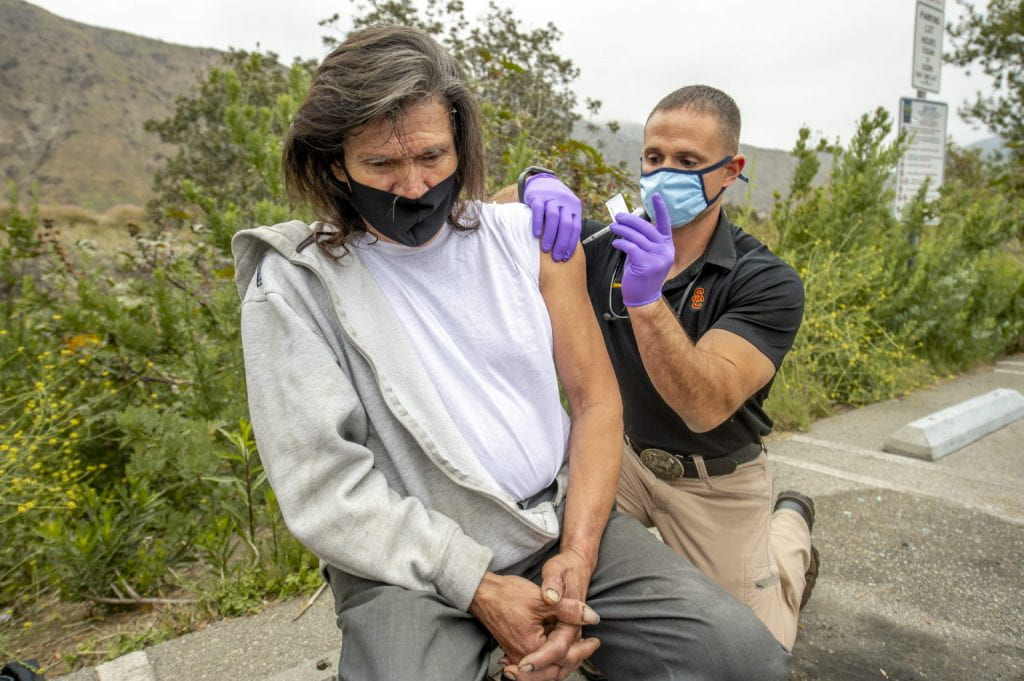It’s not easy for people experiencing homelessness to find their way to a vaccination site. That’s why the Street Medicine team is focused on bringing the vaccines to them.
Every afternoon, Kevin Mowrey rides his bike a half hour from the San Gabriel Foothills to Azusa to purchase food and supplies for the night while his partner, Frank Jauch, stays at their camp. It’s a routine born out of necessity: Food goes bad quickly when you’re homeless, and your belongings are vulnerable when left alone.
For the past year, that daily trek has come with the added stress of a pandemic that not only increased their personal health concerns but also further isolated the pair from some of the services they use. Thankfully, by receiving a COVID-19 vaccine on a Monday morning in April, they came one step closer to ending those worries.
The Street Medicine team, part of Keck Medicine of USC and the Keck School of Medicine of USC, has been caring for the 58-year-old Mowrey and 60-year-old Jauch for several months now, two of several hundred patients they see on a regular basis. And on April 12, they were the first two patients to receive a dose of the COVID-19 vaccine that Keck Medicine has allocated for the Street Medicine team.
“Getting the COVID-19 vaccine for people experiencing homelessness, especially at this point, can really be a life-changer for them,” said Brett Feldman, physician assistant and director of the Street Medicine team. “For some, for the past few months, they have really been stuck in this place of experiencing homelessness because things have been closed. Now that they’re opening back up, having a vaccine gives them a pass to begin on that path back into society and back into a home that they can get on their own.”

Getting COVID vaccines to people who are homeless includes building trust
Efforts that get COVID-19 vaccine doses out of the clinic and directly to people who are homeless are vital because something as simple as going to a vaccination site can often be an obstacle, said Gabrielle Johnson, a nurse practitioner with the team. Transportation costs can be prohibitive, and leaving belongings unattended can be risky. For many, their day-to-day survival needs — finding a safe place to sleep or their next meal — leaves little room for maintaining their health.

“One of the reasons street medicine has to exist is that the people we serve just can’t access health care the way other people do,” Feldman said.
The Street Medicine team’s Monday morning vaccination effort went directly to the patients at their campsites or nearby meeting points, which allowed them to safely administer the doses and monitor the patients for 15 minutes afterward.
And because the team has been treating each of the patients regularly, they have built up trust. For Mowrey and Jauch, that meant talking about the vaccine’s efficacy, its side effects and their personal risks of COVID-19 before the Street Medicine team even received their allocation.
“We heard all kinds of stories about the vaccine, and we looked it up on the internet,” Jauch said. “But after we talked to [the Street Medicine team] and heard they had shots, we decided to go ahead with it.”
More stories about: COVID-19, COVID-19 Heroes, Homelessness
